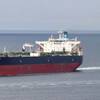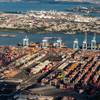Industry Task Force Pushes for Decarbonization Urgency
The Task Force on Decarbonizing Shipping will bring together leaders and experts from across the maritime industry to develop and mobilize the industry along tangible pathways aligned with ambitious, science-based emission reduction targets. It will focus on five areas key to effectively addressing the maritime industry’s climate challenge: industry leadership, technology, transparency, finance, and carbon pricing. These areas were identified as central to decarbonizing shipping at an exploratory industry workshop held in London in June 2017.
The task force will develop a vision for collaborative innovation on low carbon technologies; toolkits and guidance to increase transparency about operational efficiency; a best practice guide for incorporating climate risk assessment in ship finance; and recommendations on the role of carbon pricing in tackling emissions. All outcomes will be presented at the Global Maritime Forum’s inaugural summit in October 2018.
Niels Smedegaard, CEO, DFDS commented: “At the 2016 Danish Maritime Forum, industry leaders concluded that the shipping industry needs to adopt a leadership role in addressing the climate challenge. We as an industry must step up. We need to be a part of the solution. This calls for a common platform that delivers forward-looking collaboration to support the long-term sustainability of the global shipping industry – economically as well as environmentally.”
- Industry Leadership – This working group will connect and mobilize CEOs and other high-level decision-makers and thought leaders to determine an ambitious and achievable vision for decarbonizing shipping.
- Technology – This working group will accelerate the uptake of clean technology solutions by addressing the challenges facing owners and innovators alike. It will develop a toolbox to help technologies overcome the high-cost, low-revenue valley of death so that they can achieve viable commercial uptake. The group will focus on proven breakthrough technologies currently entering the market and outline a vision and roadmap for how the industry can work together on the development of low carbon technologies.
- Transparency – This working group will determine how information transparency can be improved to reduce information asymmetry and allow for effective decision-making on efficient and profitable operations.
- Finance – This working group will develop principles for integration of climate risk into lending decisions as well as foster development of best practices and tools to support their uptake. This will be achieved through one-on-one work with leading capital providers and a series of industry workshops.
- Carbon Pricing – This working group will explore the role of carbon pricing in tackling shipping’s greenhouse gas emissions. Key policy options will be summarised for business leaders as a basis for the discussion of industry recommendations.













